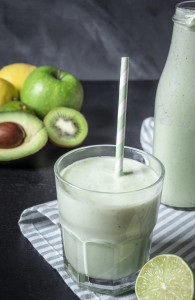Anti-Oxidants and Free Radicals – Camel Milk and its Antioxidant Properties
 What is an antioxidant?
What is an antioxidant?
We’ve all heard of free radicals and that they are bad, and that getting enough antioxidants is good, but what are they? Why are antioxidants so important for your health?
What is a free radical?
Metabolism refers to the chemical processes within your cells that convert food and oxygen into energy. This energy powers everything your body does—from breathing and digesting to thinking and cell regeneration. But during this energy-making process, your body also produces byproducts—one of which is free radicals.
Free radicals are your body’s version of exhaust fumes coming from a car engine.
Free radicals are unstable, destructive oxygen atoms. They are missing electrons. These radicals injure you body’s healthy molecules by stealing electrons to replace their missing electrons and to balance themselves. In the process, the free radicals injure cells and leave damaged cells and tissues in their wake. This process is called oxidation and it’s what makes iron rust and fruit turn brown and damage to your cells and organs.
What is an Antioxidant?
Human beings and animals have developed mechanisms that can protect against the formation of these dangerous byproducts of metabolism. It is called an antioxidant. When an antioxidant finds a free radical, it grabs hold of it, and escorts it out of the body before it can do any damage. (Chemically it helps to neutralize the free radical by offering their own electrons and so protect healthy tissue.)
How Do Antioxidants Work?
Antioxidants are found in the food we eat.
However, foods lose their antioxidant powers when they are processed and cooked. Stress, air pollution, cigarette smoke and chemicals can cause your body to produce even more free radicals. Additionally, radiation, ultraviolet light in sunshine, toxic chemicals, pesticides, excess saturated fats and even the processed foods themselves create more free radicals.
The primary benefit of antioxidants is their ability to safely react with free radicals before damage can be done on a cellular level.
The best bet is to keep your antioxidant level high by eating foods high in the vitamins needed to create antioxidants
The Role of Diet in Antioxidant Defense
What works best is with nutrients you get more naturally through a well-balanced, nutrient-rich diet. It’s always best to get your vitamins and minerals, including antioxidants, through food. Whole foods offer a broad spectrum of vitamins, minerals, and phytonutrients that work synergistically to support your health.
While antioxidant supplements are widely available, research shows the most effective way to maintain high antioxidant levels is through a well-balanced, nutrient-rich diet.
Why do we suggest Camel Milk?
Camel milk is a powerful whole food packed with a wide range of essential nutrients, and it’s particularly rich in antioxidants, which protect the body from damage caused by free radicals.
Camel Milk is a whole food and is an excellent source of protein. It also includes B vitamins, vitamin C, vitamin E, potassium, phosphorus, iron, immunoglobulins, calcium, selenium, omega-3, lactoferrin, and zinc. Vitamin C, E, selenium, and zinc are antioxidants.
Camel Milk has high vitamin C content, thus reducing oxidative damage to cells and tissues and protecting cells and tissues from damage.
Incorporating camel milk into your diet can be a natural, effective way to boost your intake of antioxidants. As a nutrient-dense, whole food, camel milk not only helps neutralize harmful free radicals but also supports overall immune and metabolic health.
Read more to discover how camel milk can be a vital part of your healthy lifestyle.
Camel Milk
Want to try Camel Milk? Try 2 Packets for 24% Off & Free Shipping (Go to Shop to Order)
STILL HAVE QUESTIONS? EMAIL AND GET YOUR QUESTIONS ANSWERED.
Sign up to receive the MCVitamins Newsletter!
Up-to-date info on the latest health-related news happening in the world
(available in English only)

